Who We Are
MOFGA’s staff, board of directors, and community members are working to drive systemic change towards a resilient, equitable, and thriving food system. Learn more about the people who make up MOFGA.
Staff
MOFGA staff work across departments to support farmers, empower people to feed their communities, and advocate for an organic future. To reach out to a member of our staff, please reach out to [email protected]. Interested in career opportunities at MOFGA? View job openings here.
Buildings and Grounds
Jason Tessier
Buildings and Grounds Director
Common Ground Country Fair
For inquiries about the Common Ground Country Fair, reach out to [email protected].
For info on Fair merchandise and the Common Ground Country Store, contact [email protected].
April Boucher
Common Ground Country Fair Director
Samantha Usavage
Common Ground Country Fair and Store Assistant
Communications and Outreach
For inquiries surrounding communications and outreach, contact [email protected].
For advertising in the Maine Organic Farmer and Gardener, email [email protected].
Clare Boland
Communications Specialist and Designer
Holli Cederholm
Content Creator and Editor
Jennifer Wilhelm
Communications and Outreach Director
Community Education
For questions about events, contact [email protected].
For all things volunteer related, including the Common Ground Country Fair, events, and year-round volunteers, email [email protected].
For our Low-Impact Forestry program, email [email protected].
For inquiries about the Maine Heritage Orchard, contact [email protected].
Timothy Boston
Community Engagement Coordinator
Lauren Cormier
Orchard Specialist
Maddie Eberly
Low-Impact Forestry Specialist
Jack Kertesz
Landscape Coordinator
Anna Libby
Community Education Director
C.J. Walke
Orchard Program Manager
Madi Whaley
Educational Programs Coordinator
Farmer Programs
Ryan Dennett
Programs Director
Bo Dennis
Beginning Farmer Programs Specialist
Caleb Goossen
Organic Crop and Conservation Specialist
Nicolas Linholm
Organic Marketing and Business Specialist
Meg Mitchell
Climate Smart and Organic Transition Specialist
Anna Mueller
Farmer Programs Manager
Jacki Martinez Perkins
Organic Dairy and Livestock Specialist
Membership and Development
For questions about membership, contact [email protected].
Joseph Nowak
Advancement Manager
Karen Stimpson
Grants Manager
Mary Weitzman
Director of Membership and Development
Marvis Zou
Membership and Development Manager
MOFGA Certification Services, LLC (MCS)
For questions about certification, contact [email protected].
Laurah Brown
Certification Specialist
Benjamin Clark
MCS Staff Inspector
Brittany Cooper
Certification Specialist
Chris Grigsby
MCS Director
Grace Keown
MCS Operations and Information Management Coordinator
Marta łaszkiewicz
MCS Operations Administrator and Inspection Program Manager
Jacomijn Schravesande-Gardei
Associate Director of Crops
Julie Trudel
Material Reviewer and MC3 Program Coordinator
Kristen
Certification Specialist: Maple Lead
John Welton
MCS Compliance and Quality Specialist
Adele Wise
Staff Inspector
Operations
Contact Sarah Alexander, Executive Director at [email protected].
Sarah Alexander
Executive Director
Angela Haiss
Operations Director
Melissa McLaughlin
Office Manager
Jennifer Morton
Finance and Operations Coordinator
Public Policy
Bill Pluecker
Public Policy Organizer
Heather Spalding
Deputy Director and Senior Policy Director
Board of Directors
Like most boards of nonprofit organizations, MOFGA’s board of directors sets the strategic direction, ensures the organization’s financial security, and supervises the work of the executive director.
A formal process exists for being nominated for election to the MOFGA board. Those interested in joining the board should discuss their interests with a current board member (see board profiles below) or indicate their interest by filling out this form. You can learn more about the nominations process here.
MOFGA members are welcome to attend board meetings. Please contact Sarah Alexander, MOFGA’s executive director, if you’d like information on attending. Read our governance and bylaws here.
Sikwani Dana
Vice President, Executive Committee
Year 1 of second term
Rob Dumas
Executive Committee
Year 3 of first term
Margaret Hathaway
Executive Committee
Year 3 of first term
Craig Hickman
Year 1 of second term
Seth Kroeck
Treasurer, Executive Committee
Year 2 of first term
Martha Leggat
Year 2 of first term
Abes Noyes
Year 2 of first term
Bradley Russell
Year 1 of first term
Ellen Sabina
President, Executive Committee
Year 1 of second term
Anna Shapley-Quinn
Secretary, Executive Committee
Year 3 of second term
Jessie Spector
Year 1 of second term
Ben Tettlebaum
Year 2 of final term
Ivonne Vazquez
Year 1 of first term
Annie Watson
Year 2 of final term
Kessi Watters Kimball
Year 1 of second term
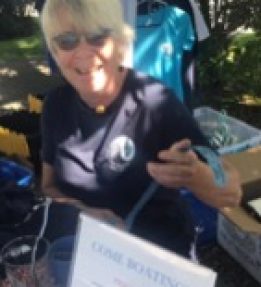
Patty Duffy
Treasurer, Executive Committee
Year 3 of first term
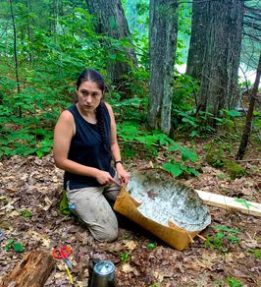
Sikwani Dana
Vice President, Executive Committee
Year 1 of second term
(she/her/hers)
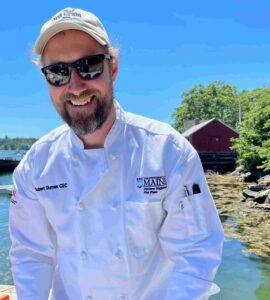
Rob Dumas
Executive Committee
Year 3 of first term,
(he/him/his)
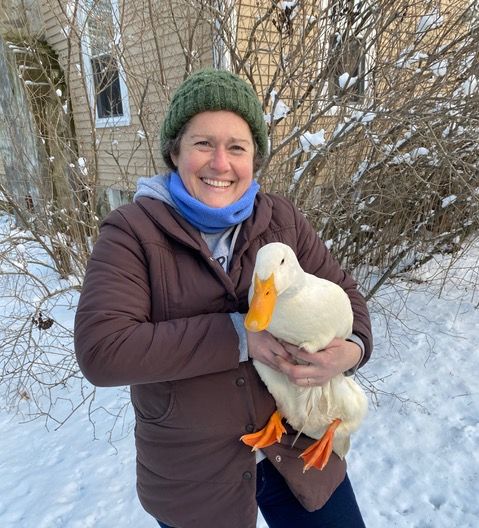
Margaret Hathaway
Executive Committee
Year 3 of first term
(she/her/hers)
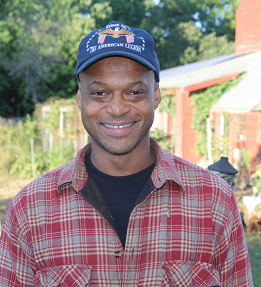
Craig Hickman
Year 1 of second term
(he/him/his)
Our Community
Since the beginning of MOFGA, our work has been driven by our broad-based community of members, volunteers, farmers, farmworkers, producers, gardeners, advocates, and more! Read more about the communities that make up MOFGA.
Members
MOFGA’s community is shaped by our members’ commitment to sharing experiences, expertise, and resources. Help us transform the food system by becoming a member today!
Volunteers
MOFGA was founded by a group of dedicated volunteers, and we continue to rely on the support of almost 2,000 volunteers each year. The collective impact of MOFGA’s volunteer community is awe-inspiring. Learn more about MOFGA’s volunteers and how you can get involved.
Farmers and Producers
MOFGA farmers, farmworkers, producers, and program members are essential to our vision of a future where local organic farming nourishes all people, and sustains thriving ecosystems, healthy communities, and fair economies.
To get to know some of our MOFGA-certified producers, click here.
